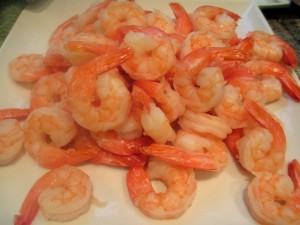A new USDA analysis of the Food and Drug Administration’s import refusals report reveals that the FDA rejected tens of thousands of imported seafood shipments because they were unfit for human consumption.
 From 2005 to 2013, nearly 18,000 shipments were refused entry into the United States for containing unsafe levels of “filth,” veterinary drug residues and Salmonella, which is responsible for thousand hospitalizations per year and hundreds of deaths. “Filth” is a catchall term used to describe anything that shouldn’t be in food—like rat feces, parasites, illegal antibiotics and glass shards.
From 2005 to 2013, nearly 18,000 shipments were refused entry into the United States for containing unsafe levels of “filth,” veterinary drug residues and Salmonella, which is responsible for thousand hospitalizations per year and hundreds of deaths. “Filth” is a catchall term used to describe anything that shouldn’t be in food—like rat feces, parasites, illegal antibiotics and glass shards.
The USDA summarized their findings by saying, “The safety of imported seafood clearly continues to be of significant concern, based on the number of shipments refused by FDA.”
Currently, the majority of all food refusals are seafood products; while the FDA is responsible for ensuring the safety of any food imported from foreign countries, they only have the manpower to inspect less than 1 percent of the 1.2 billion pounds of shrimp entering into the country each year.
The American Shrimp Processors Association (ASPA), a group representing the US Gulf and Southeast Atlantic Coast shrimp fishing industry, has expressed great concern over the findings. Dr. David Veal, the President of ASPA, was quoted as saying, “This issue goes beyond the FDA; I don’t think it’s unreasonable to expect food suppliers to take some responsibility for the health and safety of their products.” While there are a few more FDA inspectors now than a couple years ago, the ratio of shipments to inspectors is still impossibly high. Veal continued, “We hope shrimp exporters will take a more proactive role in assuring that suppliers adhere to laws designed to protect the people who buy their products.”
